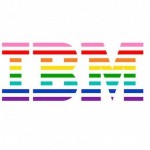Perspectives
Q&A: IBM Fellow, Dillenberger, on Life, Work, and Innovation
September 12, 2017 | Written by: IBM THINK Blog
Categorized: Perspectives
Share this post:
The THINK Blog today kicks off a new series of weekly posts called, Perspectives, that feature stories by and about IBMers who take the “long view” – whether it’s discovering the next breakthrough, starting the next chapter in their career, or examining skills that drive the next wave of innovation. We begin the series with an interview with Donna Dillenberger, an IBM Fellow. Fellow is the company’s pre-eminent technical distinction granted in recognition of outstanding and sustained technical achievements and leadership in engineering. IBM Fellows include former Kyoto Prize, Turing Award and Nobel Prize winners. The THINK Blog caught up with Dillenberger recently at her Yorktown Heights, N.Y., office to get her unique perspectives on life, work and innovation.
THINK Blog: What are some of the innovative projects you’re working on.

Dillenberger, IBM Fellow.
Dillenberger: Right now I’m involved in blockchain, analytics and cloud security. We’re at an inflection point in society where we’re sharing more information than ever before. But while the Internet provides the technical means to make that possible, the data we discover is not always verifiable, and sometimes it’s provided by anonymous sources that don’t stand behind what they publish.
We need a way to share information that has a pedigree behind it, which is where Hyperledger Fabric deployed on IBM’s Blockchain Enterprise come into play. I have been working with our blockchain team to ensure the quality of trust, security and pedigree behind data. We’re creating a system where our clients can be confident that information is secure and verifiable. The innovation of blockchain with the security of our enterprise platform is that it provides a mechanism to stand behind data in a scalable way – whether it’s for banking, supply chain, food safety or healthcare. Once you have a repository of trusted data, you have a foundation for analytics that can be used to responsibly share information for the greater good of business and society.
THINK Blog: Do you recall your first job ever?
Dillenberger: I was seven years old and my parents were working full time. My older brothers and sisters worked, so my first job was to take care of my three-year-old sister. I learned a lot about children and how they develop. I also learned about loyalty and pure affection, and what it’s like to have someone trust you entirely.
I also learned to speak and read English in school. My parents were immigrants from China, and my mother asked me to teach her English. I put a lot of thought into how best to teach another person complex ideas and looked for books that she would find interesting and help her understand the U.S. and its culture. Growing up in two cultures, you’re not really part of either culture, so my siblings and I developed our own, which was really fun. It’s a more immersive and intensive experience than creating a corporate culture, but the precepts and what works are the same.
THINK Blog: How have your skills evolved over time?
Dillenberger: Since I started working, I have viewed careers as a set of activities that makes people grow their skills, their mental and emotional capabilities, and their understanding of the world. I learned from taking care of my sister and my parents when I was a child, to think of other people, to develop patience and empathy.
The skills you develop by listening to yourself also teaches you what you would excel at. You have to be able to listen to your own voice in addition to what you hear from your parents, peers, teachers and the culture at large. You have to be able to separate what others think you should do to be successful, vs. how you define success. This is important for scientific innovation, business innovation and more importantly, the ability to follow your own voice is the most important factor in developing oneself happily.
The skills of empathy, listening and patience also enable people to deal with challenges at work because you can think beyond the immediate issue at hand. I had many careers in different companies and within IBM. These careers gave me the skills to design hardware, software, compilers, languages, hypervisors, workload and currently blockchain features. After a while, one learns to think abstractly about the problem being solved. Technology offers tools of the trade, but innovation comes from deciding what to build and why. Beyond the task, no matter what you are working on, empathy focuses one to think about how solving this problem will help the business, the people who use it, and ultimately, humanity.
Making the workplace safe for employees living with HIV
The recent promising news about Covid-19 vaccines is in sharp contrast to the absence of a vaccine for HIV, despite decades of research. Unlike Covid-19 with a single viral isolate that shows minimal diversity, HIV circulates in a wide range of strains that so far have proven impervious to a single vaccine. Fortunately, more people […]
Call for Code for Racial Justice Needs You: Join the Movement
IBM has never avoided taking on big challenges. At IBM, we are privileged to drive impact at scale. We take on challenges that transform our clients, impact people’s lives and innovate for future generations as we strive to effect systematic societal change. Over the course of our 109-year history, the evidence has become clear that […]
A New Wave: Transforming Our Understanding of Ocean Health
Humans have been plying the seas throughout history. But it wasn’t until the late 19th century that we began to truly study the ocean itself. An expedition in 1872 to 1876, by the Challenger, a converted Royal Navy gunship, traveled nearly 70,000 nautical miles and catalogued over 4,000 previously unknown species, building the foundations for modern […]



